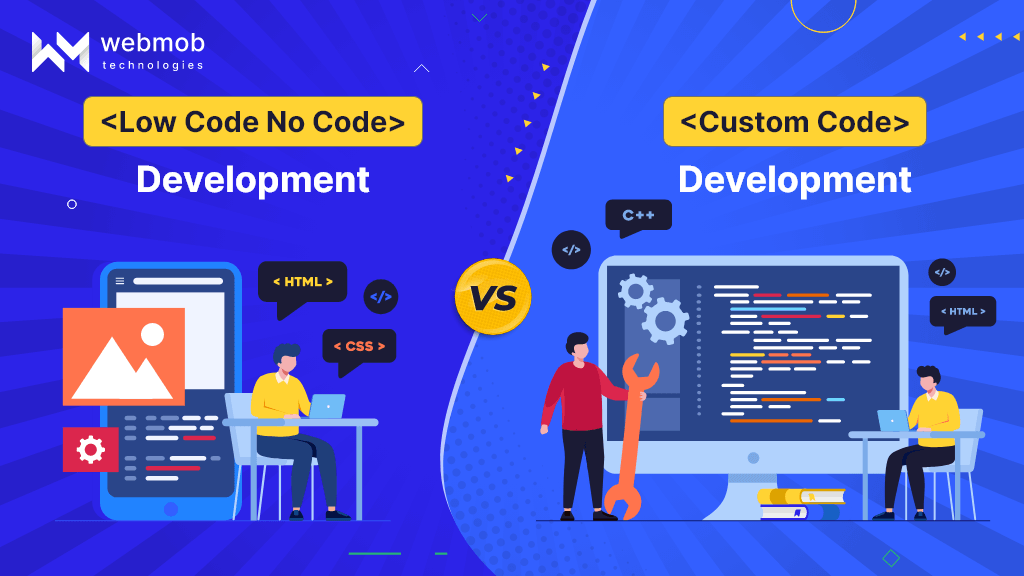In today’s digital age, companies are rapidly adopting new technologies to meet their business goals and remain competitive. Software development is no exception to this trend. However, traditional software development methods require skilled developers to write code from scratch, which can be time-consuming and costly. Low-code/no-code (LC/NC) development is an alternative approach that empowers citizen developers to create applications using visual tools and pre-built components, without requiring extensive coding knowledge.

What is Low-Code/No-Code Development?
Low-code/no-code development is a visual development approach that enables business users with little to no coding knowledge to create applications using drag-and-drop interfaces, pre-built templates, and components. It aims to simplify the development process and accelerate application delivery by providing non-technical users with the tools they need to build and deploy applications quickly.
Low-code platforms typically provide a visual interface for designing the application, drag-and-drop components, and an underlying code-generation engine that automatically generates code based on the user’s design. No-code platforms, on the other hand, provide pre-built components and templates that allow users to assemble an application without any coding at all.
Advantages of Low-Code/No-Code Development
- Faster Application Delivery: Low-code/no-code development enables business users to quickly create and deploy applications without the need for skilled developers, reducing the time-to-market for new applications.
- Reduced Cost: Traditional software development can be expensive due to the need for skilled developers, but LC/NC development allows business users to create applications on their own, reducing the cost of development.
- Increased Flexibility: LC/NC development enables business users to create custom applications tailored to their specific needs, rather than relying on off-the-shelf solutions that may not meet all of their requirements.
- Empowering Citizen Developers: LC/NC development empowers business users to take an active role in the software development process, increasing their engagement and sense of ownership in the final product.
- Improved Collaboration: LC/NC development tools provide a common platform for business users and IT teams to collaborate and work together on application development, promoting better communication and understanding between the two groups.
Challenges of Low-Code/No-Code Development
- Limited Customization: While LC/NC development tools offer a high degree of flexibility, there may be limitations to what users can customize, which may not meet their specific needs.
- Security Risks: LC/NC development tools may have security risks associated with them, such as data breaches or unauthorized access.
- Technical Limitations: LC/NC development tools may not provide the same level of technical functionality and performance as traditional software development approaches.
- Vendor Lock-in: Organizations using LC/NC development tools may face vendor lock-in, as it can be difficult to migrate to another platform once an application has been built.
Conclusion
Low-code/no-code development is an emerging trend in software development that offers several advantages for businesses, including faster application delivery, reduced cost, increased flexibility, and improved collaboration. While there are some challenges associated with LC/NC development, organizations can mitigate these risks by adopting best practices for security and vendor management. As technology continues to evolve, low-code/no-code development is likely to become an even more prominent part of the software development landscape, enabling citizen developers to take a more active role in creating the applications that drive their businesses forward.

